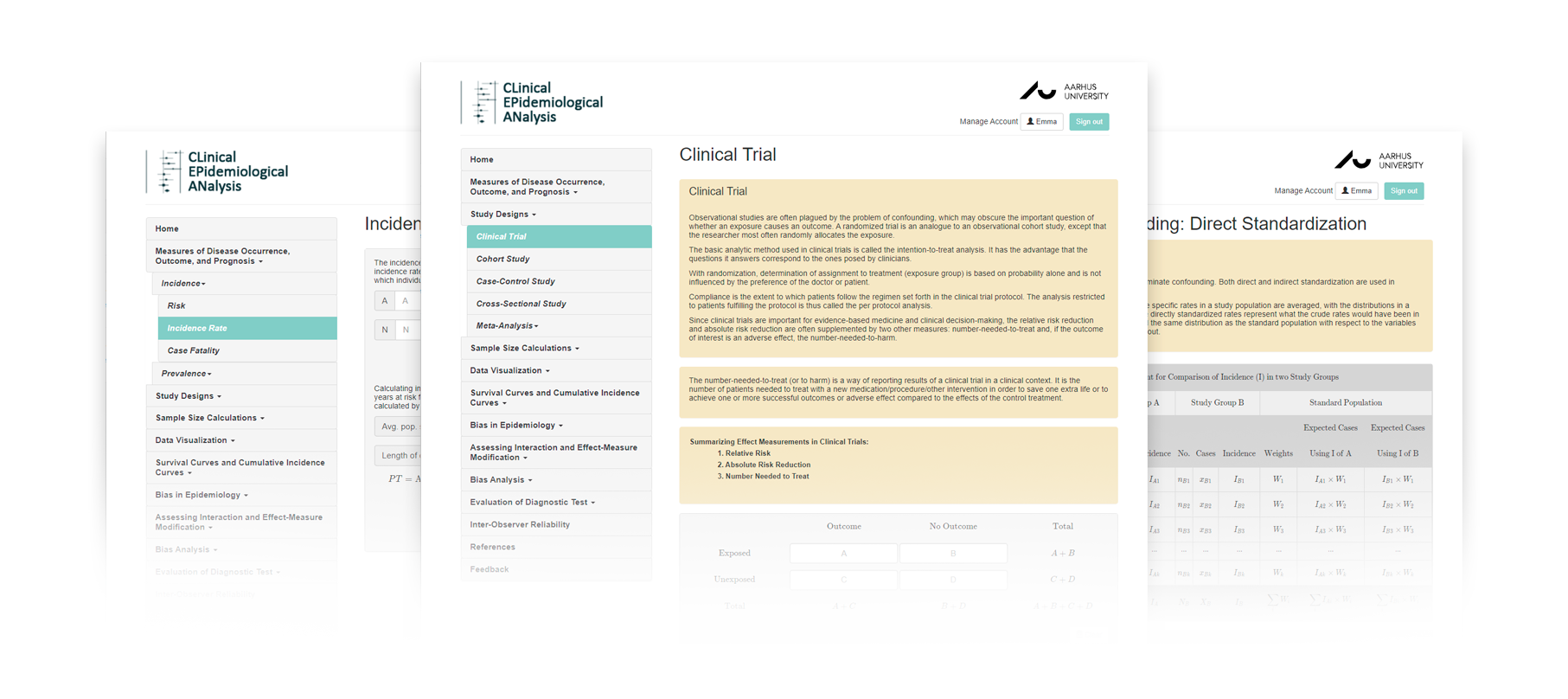Welcome to CLEPAN
The aim of CLEPAN is to introduce medical students, clinicians without formal research training, and predoctoral students to basic clinical epidemiological concepts and analytic methods, without needing to learn an advanced computer program.
Learn about
clinical medicine, epidemiology, and biostatistics- Measures of disease occurrence, outcome, and prognosis
- Study designs
- Sample size calculation
- Data visualization
- Bias and bias analysis
- Interaction and effect-measure modification

Scientific Evidence
Sound scientific evidence is a prerequisite for any modern health service system to provide safe, high-quality patient care and to take maximum advantage of advances in diagnostics, treatment, rehabilitation, and prevention.
This evidence is derived best
from continually updated answers
to four key generic clinical questions
DIAGNOSIS
Which tests/examinations should be used to diagnose a disease and predict its course?
PROGNOSIS
What is the expected course of a disease without clinical intervention (natural history) or with treatment (clinical course)?
INTERVENTION
To what extent will a specific clinical intervention be beneficial in terms of curing or preventing a disease, slowing its progression, or reducing its symptom burden?
RISK-HARM
What are the risks - side effects, unintended adverse effects, complications - of selected treatments and interventions?
Addressing these questions
Addressing these questions requires integrated knowledge of clinical medicine, epidemiology, and biostatistics